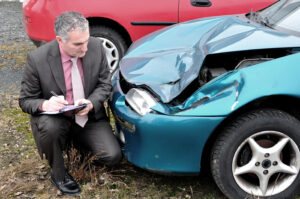Rear-end collisions are one of the most common types of car accidents, often resulting in property damage, injuries, and even fatalities. In King County, Washington, there are specific laws and regulations in place to govern these incidents and ensure the safety and well-being of all road users. If you have been involved in a rear-end collision in King County, it is crucial to understand the legal requirements and your rights. Paukert & Troppmann, PLLC is here to guide you through the intricacies of King County’s laws regarding rear-end collisions and help you navigate the legal process.
King County Laws Regarding Rear-End Collisions
Negligence and Liability
In King County, as in most jurisdictions, negligence is a key factor in determining liability in rear-end collisions. Generally, the driver who rear-ends another vehicle is presumed to be at fault for the accident. However, this presumption can be rebutted if the driver can provide evidence that the front vehicle was negligent or contributed to the accident in some way.
The following Distance
King County law requires drivers to maintain a safe following distance behind the vehicle in front of them. The distance must be reasonable and appropriate, taking into account factors such as road conditions, weather, and traffic flow. Failing to maintain a safe following distance can be considered negligence if it leads to a rear-end collision.
Distracted Driving
Distracted driving is a major cause of rear-end collisions. King County prohibits various forms of distracted driving, including texting, talking on a handheld cellphone, or engaging in any other activities that take your attention away from the road. Violating these laws can result in fines and penalties and can be used as evidence of negligence in a rear-end collision case.
Speeding
Speeding is another common factor in rear-end collisions. King County sets speed limits based on the type of road and its conditions. Exceeding the speed limit or driving at a speed that is unsafe for the current conditions can lead to a rear-end collision and subsequent liability for the speeding driver.
Legal Requirements and Steps to Take After a Rear-End Collision
Reporting the Accident
In King County, it is important to report a rear-end collision to the police if the accident resulted in injuries, fatalities, or property damage exceeding a certain threshold. Reporting the accident promptly helps create an official record, which can be valuable when seeking compensation for your losses.
Seeking Medical Attention
Even if you do not feel injured immediately after a rear-end collision, it is crucial to seek medical attention. Some injuries, such as whiplash, may not manifest symptoms right away. Documenting your injuries and following the recommended medical treatment not only ensures your well-being but also strengthens your case for compensation.
Gathering Evidence
Collecting evidence is essential to establish liability and damages in a rear-end collision case. Take photographs of the accident scene, damage to the vehicles involved, and any visible injuries. Obtain witness statements, gather relevant documents, and preserve any surveillance footage if available. This evidence will be vital when negotiating with insurance companies or presenting your case in court.
Contacting an Experienced Attorney
Navigating the legal complexities of a rear-end collision case can be overwhelming, especially while dealing with injuries and property damage. Seeking legal representation from Paukert & Troppmann, PLLC will provide you with experience guidance throughout the entire process. Our experienced attorneys will assess your case, negotiate with insurance companies, and fight for the compensation you deserve.
Compensation and Legal Options
Insurance Claims
In King County, if you’ve been involved in a rear-end collision, you may be entitled to compensation through an insurance claim. Washington follows a fault-based system, which means the at-fault driver’s insurance typically covers the damages. It is crucial to notify your insurance company promptly and provide them with all the necessary documentation to support your claim. However, insurance companies are often focused on minimizing their payouts, which is why having a skilled attorney on your side can be beneficial.
Personal Injury Lawsuits
If you’ve sustained serious injuries or your damages exceed the insurance coverage, you may consider filing a personal injury lawsuit against the at-fault driver. In King County, you generally have three years from the date of the accident to file a lawsuit. However, it is recommended to consult with an attorney as soon as possible to understand the specific time limitations and ensure a timely filing.
Seeking Damages
- In a rear-end collision case, you may be eligible to seek various types of damages, including:
- Medical expenses: This includes costs for hospitalization, surgeries, medications, rehabilitation, and any future medical treatment related to the accident.
- Lost wages: If the accident caused you to miss work, you can pursue compensation for the income you lost during your recovery period.
- Pain and suffering: Non-economic damages, such as physical pain, emotional distress, and diminished quality of life, may also be included in your claim.
- Property damage: You can seek compensation for the repair or replacement of your damaged vehicle or any other property affected by the collision.
If you have been involved in a rear-end collision in King County, Washington, it is essential to understand the local laws and take the necessary steps to protect your rights. Contact Paukert & Troppmann, PLLC today for a free consultation. Our skilled attorneys will evaluate your case, provide personalized advice, and work diligently to secure the compensation you deserve. Remember, time is of the essence, so don’t delay seeking legal assistance. Let Paukert & Troppmann, PLLC fight for your rights and help you navigate the complex legal landscape after a rear-end collision.
